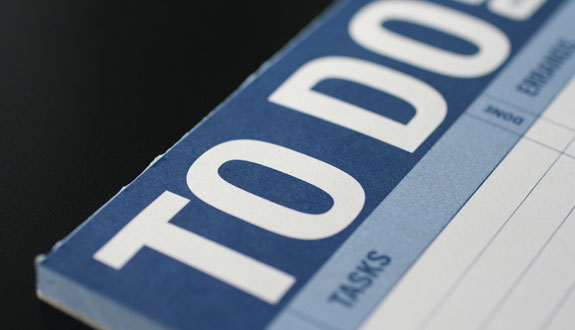
With three weeks left until the June LSAT, things are getting real. Now is not a time for panic, but focus; you can get a lot done in the upcoming days with the right mindset. Here are three tips that will help you maximize your potential over the next three weeks:
Tip #1 for the Final 3 Weeks of June LSAT Prep: Don’t just take practice LSATs – study them.
We all have been taught the importance of practice exams. Taking a whole bunch of them will help build the endurance you’ll need when your brain starts to get tired in that third hour. But when it comes to practice LSATs, quality is just important as quantity. The key to getting the most out of your exams is setting aside the time to properly review them. This goes beyond just looking up explanations for the questions you got wrong. Really try and study your results. What categories of LR questions are you missing the most? Are you losing focus in science passages, or in the third or fourth passages of a Reading Comp section? The better you diagnose your weaknesses, the better you can address them before LSAT test day and pick up some serious points.
Oh, and don’t do this kind of review right after you’ve finished and scored your practice LSAT. Do it later, with a rested brain and fresh set of eyes.
Tip #2 for the Final 3 Weeks of June LSAT Prep: Haste makes waste. For improved speed, work smoother, not faster.
The LSAT is a time-sensitive test. It’s hard to finish each section, and as an instructor, I am constantly asked for ways to improve speed. The most important lesson to be learned is that haste makes waste. It is far better to be accurate and not finish a section than it is to rush to the finish, at the expense of accuracy.
For example, let’s say you can only get to three out of the four LSAT Logic Games comfortably. In a typical 24-point Logic Games section, that means you’re really only “seeing” about 18 of the questions if you don’t rush. This sounds bad, but let’s compare outcomes. If you don’t let yourself get rushed and make proper setups with deductions, let’s say you absolutely nail the first two games (which are typically easier) and struggle somewhat on the third, missing two questions. At that point, you’re 16 for 18. You don’t have enough time for the last game, so you do the elimination question (which is an easy point you can pick up without making a setup) and guess on the last five. Twenty percent odds means you’ll get one of those five guesses right, which means your overall score for the section is 18 out of 24, or a respectable 75 percent. From my experience, the same caliber student who rushes through all four games but “finishes” them could expect accuracy anywhere in the 50-70 percent range.
Note: As of August 2024, the LSAT will no longer have a Logic Games Section. The June 2024 exam will be the final LSAT with Logic Games. Learn more about the change here.
Logic Games are just one example where working faster doesn’t necessarily save time or render better results. If you breeze through the stimulus in LR, you probably will end up re-reading it three or four times anyway. Likewise, if you rush straight to the answer choices in LR without taking 10 seconds to anticipate, the answer choices might look ambiguous, and you could take twice as long to arrive at the correct response. (Anticipation is a great time saver. It’s easier to find the answer when you know what you’re looking for).
If you do actually want to “speed up,” the way to accomplish this is by working smoother, not faster. Working smoother means streamlining your processes. Ensure you have a simplified and regular process for working out LR questions; for most of them, this should start with identifying the conclusion of an argument. Look at your setups for LSAT Logic Games. Are they messy and hard to read? Try to get a routine where everything is in the same, predictable place. (I like my ordering and grouping setups to the far upper left and write out my rules and deductions directly below that, all lined up vertically.)
If everything in your setup is legible, lined up and in the same predictable place, you will save precious seconds (which can add up to minutes) as your eyes move back and forth between the questions and your scratch work. Moreover, less clutter in your game setup means less clutter for your brain; when your brain isn’t distracted over trying to find a rule or read your own chicken scratch, it can do a much more efficient job at the things it’s supposed to be doing. Ever notice that you’re in a much clearer frame of mind when your apartment is clean? It’s kind of like that.
Reading Comprehension is also a great place to shave lots of time. Look at the Reading Comp sections you’ve done. Do you mark up the passage? Underlining conclusions and tagging paragraphs is going to help you save time when you get to the questions. On the flip side, maybe you’re marking up passages too much. Do you underline everything? Are you doing full blown note-taking in the margins? Consider whether all that stuff you’re writing out gets utilized when you answer the questions. If not, it’s waste—eliminate it and you’ll be amazed at how much extra time you have.
Tip #3 for the Final 3 Weeks of June LSAT Prep: Be nice to your brain.
The part of LSAT prep that probably goes most ignored by students is keeping the brain in ship shape. Ultimately it’s that big guy (or gal) inside your head that’s going to determine your LSAT fate, so you might as well take good care of it. This means you need to sleep, you need to keep stress at bay, and you need to eat well.
Without sleep, your cognitive abilities will be stunted. You won’t be focused enough on the task at hand and your accuracy will suffer. You also need sleep to convert short-term memory to long-term, which is crucial if for LSAT students trying to learn from their mistakes. I’m a firm believer that once you get tired, an hour of sleep is more helpful than an hour of extra studying.
Managing stress is also key. Some jitters on LSAT test day are to be expected, but your brain will work better that day if you haven’t had an outpouring of LSAT-related stress in the weeks leading up to it. There are a lot of ways to relieve stress, but one of the most universally proven (and my personal favorite) is exercise. Even if you’re not a gym rat, a brisk walk outside a few days a week is all you need to clear your mind and get the endorphins flowing.
The last tip for brain health, of course, is maintaining an ample, healthy diet. The brain needs a lot of energy—it’s responsible for roughly a quarter of the calories your body burns every day. So make sure you don’t run out of gas. And make sure it’s high-octane gas. You wouldn’t put regular unleaded in a Ferrari, and your brain is a Ferrari. You don’t have to be a paragon of nutrition, but eat some fruits and veggies and consider a multivitamin. One last word about food: eating healthy doesn’t mean avoiding fat. The brain needs fat to thrive, so don’t be shy with the butter on your toast. Better yet, add some mashed up avocado and scrambled eggs with cheese. Ultimate brain food for LSAT test day, guaranteed.




